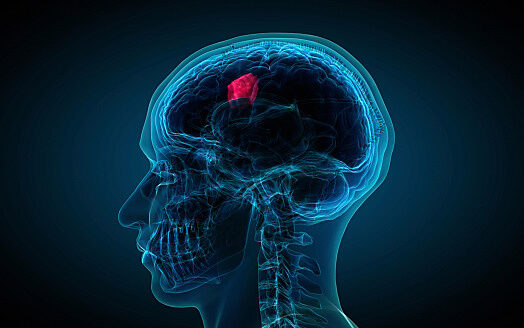New combination therapy slows deadly brain tumor in mice, UF Health researchers find

As the deadliest primary brain tumor, glioblastoma is a stubborn foe. In addition to being aggressive, glioblastoma hasn’t responded to immunotherapies that have succeeded against some other types of cancers. Now, University of Florida Health and Massachusetts General Hospital researchers have found a combination approach using those therapies that is showing promise.
The results in animal models have advanced the treatment toward early trials in human patients. The findings are published today in the Proceedings of the National Academy of Sciences.
Researchers focused on cells known as myeloid-derived suppressor cells, or MDSCs. Typically, these cells help tumors flourish by inhibiting the normal functions of the immune system. The researchers tested a combination treatment: One of the therapies is a “checkpoint inhibitor,” which re-activates the anticancer response the tumor has shut down. The other, a new drug developed by ChemoCentryx, targets a protein, CCR2, that helps recruit the MDSCs to the tumor.
The new therapy blocked the MDSCs from infiltrating the tumors, stimulating an immune response that allowed the mice to live longer.
The new drug has passed human safety testing and is in early phase trials for pancreatic cancer patients, raising the prospects for moving the therapy to human clinical trials. This could offer hope for patients with glioblastoma, where the median survival time is just 15 months, and the five-year survival rate is less than 10%.
The research was led by Jeffrey K. Harrison, Ph.D., a professor in the UF College of Medicine’s department of pharmacology and therapeutics and Rakesh K. Jain, Ph.D., a professor of tumor biology at Massachusetts General Hospital. Other UF Health contributors included Joseph A. Flores-Toro, Ph.D., a recent Biomedical Sciences graduate student in the department of pharmacology and therapeutics; Duane A. Mitchell, M.D. Ph.D., a professor in the Lillian S. Wells Department of Neurosurgery, and co-director of the Preston A. Wells Jr. Center for Brain Tumor Therapy; Matthew Sarkisian, Ph.D., an associate professor in the department of neuroscience. Harrison and Sarkisian are members of the UF Health Cancer Center. Mitchell is the co-leader of the UF Health Cancer Center Cancer Therapeutics & Host Response Program.
Research funding was provided by the Florida Center for Brain Tumor Research, Accelerate Brain Cancer Cures, the American Association of Cancer Research and the National Institutes of Health.
Go to https://bit.ly/2Q5946D to view the complete journal article.
About the author
